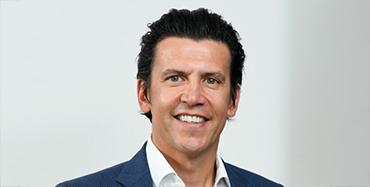
Stress busters: how to help employees help themselves
Dr. Rachel Lewis explores how empowering teams to co-create solutions can reduce workplace stress and boost wellbeing...

by Salvatore Cantale, Carmen von Rohr Published April 26, 2021 in Strategy • 6 min read
Too many companies looking to buy out or join forces with their rivals ignore the risks posed by differences between workforces and corporate culture.
In 1998, Jürgen Schrempp touted his “merger of equals” with Chrysler as a textbook example of a meticulously planned deal. The Daimler boss, who had focused his sprawling German industrial empire on transportation, told anyone who’d listen he had studied dozens of big M&A transactions and learned about all the pitfalls.
Nine years later, the merger collapsed amid mutual rancour. Daimler, famous for its Mercedes-Benz cars, and Chrysler, attractive primarily for its Jeep sports utility brand, parted company. Since then, the German group has flourished, despite its costly US misstep, while Chrysler was bought by Italy’s Fiat, now part of the French-led Stellantis automobile group.
Experience doesn’t necessarily help. Almost as eye catching was the merger in 2015 of Lafarge and Holcim, the world’s two biggest cement makers. The French and Swiss groups overcame potentially fatal anti-trust concerns to create a global champion ready, said executives on both sides, to reap massive synergies and cost savings and turbocharge the share price.
Six years and many upsets later, the transaction has emerged as a takeover of Lafarge by its smaller Swiss rival. The Swiss partner has become so dominant that LafargeHolcim is planning to shed the French component of its name.
What do such transactions tell us about the problems of M&A? Of course, every deal is unique, but one crucial factor that often gets overlooked is the way each partner manages clashes of culture and different approaches to human resources management.
DaimlerChrysler’s proud German engineers were unwilling to share technology and collaborate with whom they considered to be inferior US counterparts. At LafargeHolcim, a rigid and hierarchical French management culture collided with a more consensual Swiss one. While financial and other obstacles impeded both transactions, cultural clashes and misguided personal judgements underpinned their problems.
Such stress on the human side of M&A contrasts with the widespread view that success in any transaction is primarily a numbers game. Only once due diligence has been done and a transaction largely sealed does the human resources side kick in, as the focus shifts from figures to integration and reorganization, including job cuts and savings.
History, however, shows the human side should be involved much earlier. “It’s good practice to have HR involved early with a strategic say in talent and culture. Everyone knows this is good practice and everyone talks about it, and yet the transactional stuff seems to be driven by numbers and finance,” says Emily Clark, Senior Associate at international law firm Bird & Bird.
Smooth HR management can make the difference between a successful takeover and a disaster, especially if harnessed as early as the target identification stage. The market intelligence and contacts of a large and effective HR department can spot potential takeover candidates and avoid traps, as well as handle post deal matters such as retention and recruitment.
“HR can support the business by looking at the opportunities that are out there. For example, informal conversations with contacts can sometimes lead you to see opportunities that others don’t see,” says Stephen Taylor, Global Head of HR at Sonnedix, the solar power group.
A study conducted by Corporate Research Forum, a London based membership organization enabling HR and reward directors to engage with leading business thinkers and academics, and its associated Performance & Reward Centre, found that a smooth transaction required the involvement of HR teams from the earliest stage of the acquisition process. The research was based on interviews with a range of HR practitioners, experts and academics, many involved in M&A, as well as an online survey, and backed by orgvue, the corporate organizational specialist, and Bird & Bird, the technology focused international law firm.
With an estimated 70-90 per cent of mergers and acquisitions not meeting expectations, the interviewees, covering a spectrum of industries, underlined the value of early HR participation. They all emphasized the importance of understanding a target’s corporate culture and its human resources profile to avoid unexpected problems down the road.
Such preparation may have become all the more important now, after the COVID-19 pandemic. While the arrival of the coronavirus prompted a sharp fall in global M&A transactions in the first half of 2020, more recent months have demonstrated a marked revival. Deals that had been stuck in the pipeline are now being completed and some management teams have seen the global disruption as a stimulus to act, particularly with distressed vendors in the market.

Make HR part of the core M&A team
So, what exactly is the role of HR teams in M&A? First comes recognition: HR specialists must be treated as a core part of corporate M&A teams, and not just employees who come along somewhere near the end to sort out personnel issues. They should be encouraged or obliged to form strong relationships with strategy and finance colleagues, and attend meetings with outside advisers such as M&A bankers and lawyers.
“HR is a key member of the transaction team. Being present in meetings with lawyers and advisers is critical in order to identify key risks as they arise and respond to urgent requests for data or decisions,” notes the report.
While early involvement may seem common sense, many of those interviewed confirmed it was seldom the case, even at the biggest companies.
Tap into HR market intelligence
HR people are much more attuned to market gossip and important personnel changes than colleagues focused on financials, products or markets. Their ability to gather intelligence and exploit contacts is unlikely to be echoed by others. They also follow social media – an increasingly important source of market intelligence. So, HR specialists should be involved in spotting potential target companies, and the more obvious field of talent identification during due diligence to prevent serious mismatches.
Integrate workforces quickly and follow up
All the interviewees acknowledged the busiest time for HR teams was in the integration stage. Ensuring a successful mesh between two companies, or a smooth incorporation of a smaller unit into a larger one, requires good leadership, clear communications and, perhaps most important, speed to avoid debilitating uncertainties.
“HR is not responsible for the acquisition, for how people will feel about it – that’s leadership. HR is the enabler – we are there to help and support. The organization cannot expect HR to change the culture, but we can and should provide tools for leadership to change the culture,” comments Mehmet Kocum, Talent Development Manager at Ball Corporation, the aluminium packaging group.
Nor does the HR function stop on the official date of completion. Longer term follow up is essential to prevent belated surprises. And it is important to store and codify lessons for future transactions.
Hire the right HR expertise
Do today’s HR teams make the cut? Not often, say most of the interviewees. Self-evidently, HR can only contribute if it includes specialists with the depth and breadth of skills needed for M&A work.
“Organizations would like to use HR more during transactions, but HR doesn’t always have the capabilities or the capacity, so their involvement may be limited or too late,” notes George Goudriaan, Senior International HR Consultant at Dutch bank ABN Amro.
That range of talents should include people with financial and legal knowledge, as well as others with expertise in risk assessment and due diligence. While some big companies interviewed could build such capabilities into their HR teams, smaller groups might have to resort to dual roles or relying on outsiders. Strategies for building capabilities include the use of masterclasses, knowledge-sharing, and playbooks; it is then critical that HR deliver once asked.
The complexity of M&A means there will continue to be textbook successes and case study failures. But taking simple steps to ensure the early involvement of HR expertise should lead to more of the former and fewer of the latter.

Professor of Finance at IMD
Salvatore Cantale is Professor of Finance at IMD. His major research and consulting interests are in value creation, valuation, and the way in which corporations structure liabilities and choose financing options. Additionally, he is interested in the relation between finance and leadership, and in the leadership role of the finance function. He directs the Finance for Boards, Business Finance, and the Strategic Finance programs as well as the Driving Sustainability from the Boardroom program and the newly designed Bank Governance program.

Research Manager at Corporate Research Forum
Carmen von Rohr is Research Manager at Corporate Research Forum. Her research interests include corporate social responsibility, HR’s role in mergers and acquisitions, employee wellbeing and experience, and inclusion.

June 23, 2025 • by Rachel Lewis in Human Resources
Dr. Rachel Lewis explores how empowering teams to co-create solutions can reduce workplace stress and boost wellbeing...

May 13, 2025 • by Luca Condosta in Human Resources
The CDO, formerly a figurehead for regulatory compliance, is now a key driver of company strategy. Luca Condosta describes the essential skills that CDOs require to turn DE&I concepts into actual commercial...

April 30, 2025 • by Manju Ahuja in Human Resources
The pandemic sparked a shift to remote work that’s proving hard to reverse. According to Prof. Manju Ahuja, hybrid models are the new norm—driven by employee expectations, technological advances, and a changing...

April 29, 2025 • by Michael D. Watkins in Human Resources
Use this diagnostic tool and roadmap to rebuild trust and confidence within dysfunctional teams – the first crucial steps toward a future of high performance....
 Audio available
Audio availableExplore first person business intelligence from top minds curated for a global executive audience